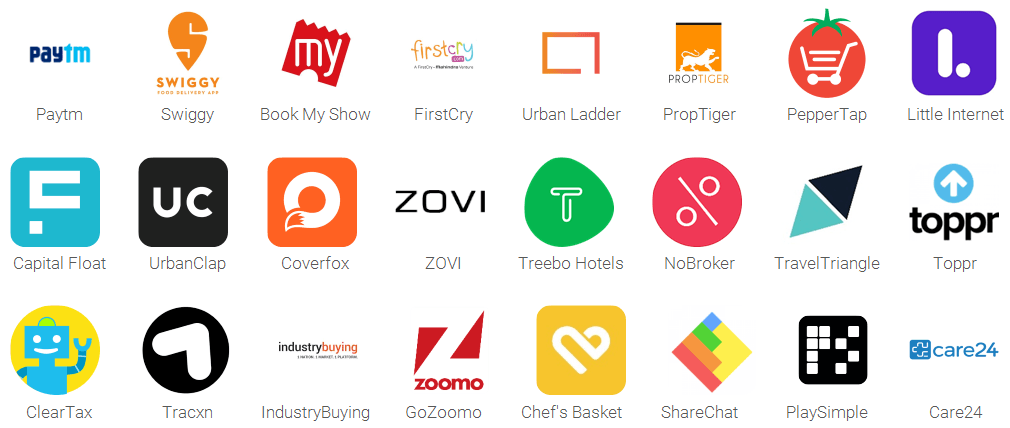
Photo credit: Pexels.
SAIF Partners has just raised a new US$350 million fund dedicated to India. This is the VC firm’s sixth fund and takes its assets under management to US$4 billion.
Two other big VCs active in India have larger funds: Sequoia Capital raised a US$930 million fund last year, its fifth one for India. Accel Partners has also raised five funds for India, its fifth one worth US$450 million earlier this year. But SAIF has chosen to keep the size of its fund at the same level as its previous ones.
“This size helps us to make concentrated, well-thought-through bets,” SAIF Partners’ managing director Alok Goel tells Tech in Asia. At the same time, it is large enough to invest across the range from early to late stages in multiple sectors.
“We don’t adopt a spray-and-pray approach which we might end up doing if we were to raise a billion-dollar fund,” continues Goel. “That kind of approach is not good for the entrepreneurs.”
What’s remarkable is that SAIF raised the new India fund in four days flat. And without getting any new investors in. “We have a handful of global blue chip companies who have been investing with us, supporting us for a long time. We just stick to them. They are very long-term oriented limited partners (LPs) who give us the ability to build long-term funds,” says Goel. “With this new fund too, we didn’t get any new LPs. We went back to our old LPs and it took us just four days to close the fund raise.”
The fund size of US$350 million also helps SAIF give returns on investments in multiples to its LPs. “A larger size fund size will mean a lot of perverse incentives to the VCs. It will promote various behaviors which we are not comfortable with,” says Goel.
See: Looking for funding? Here are the 10 most active investors in India
Winners in the stable

Some of the investments made by SAIF Partners in India. Photo credit: CB Insights.
Big hedge funds burned their fingers in India last year as hyped up projections of growth in consumer internet companies led to business models that paid scant regard for unit economics. A period of correction followed, with many startups biting the dust. The bargain basement sale of payments company FreeCharge to Axis Bank, and the impending one of its parent Snapdeal to rival ecommerce site Flipkart, rings the curtain down on that phase. Funding has picked up again in India this year, with mega rounds for Flipkart and Paytm.
Payments and ecommerce company Paytm, which is backed by Alibaba and recently raised US$1.4 billion from SoftBank, is among the early bets that paid off handsomely for SAIF. Others include leading travel portal MakeMyTrip and classifieds site JustDial.
Among startups on its portfolio which have gained traction are food delivery leader Swiggy, which is currently battling an attack in social media, movie ticketing site BookMyShow, which expanded to Indonesia last year, and logistics startup Rivigo. Hyperlocal services company UrbanClap, alternative loans provider Capital Float, and broking house Sharekhan are other notables.
Goel says SAIF will continue to back ecommerce and travel, but “start thinking more aggressively” about sectors like finance, enterprise SaaS, IoT, healthcare, education, and agriculture.
The Indian startup ecosystem’s version 1.0, according to him, was more of a land-grab with basic services like ecommerce, ride-hailing, and content. But a lot of other sectors are now opening as mobile becomes more and more ubiquitous. “Our bandwidth is increasing with 4G penetration, and so is per capita income,” he points out. “That means a big opportunity for the next wave of innovation where large, meaningful value will be created for consumers and business.”
With the new nationwide tax system in place, logistics business in India will see an overhaul. That means a big opportunity.
Goel takes the example of finance. “Only about 30-odd million people have got some kind of credit-rating in the country [with a population of 1.3 billion]. That does not mean these 30-odd million people are the only ones who deserve some kind of credit or loan.” He points out that if more people have access to loans and other forms of credit, that would mean more investments, which in turn would create more jobs and improve the livelihood of people. “With mobile becoming more ubiquitous, there’s a good chance for credit to grow,” he adds.
The rollout of a centralized GST (goods and services tax) this month in a country with 29 states, each of which had its own taxation system earlier, is another game-changer. “A lot of businesses can completely re-architect their supply chain and logistics which till now has been optimized for taxation and from now will be optimized more towards business processes,” says Goel. That means a big opportunity on the logistics front for startups.
Born in India and headquartered in Hong Kong, SAIF Partners is India’s oldest VC, with investments dating back to 2002. In 2015, ex-Googler Goel joined the firm as managing director. He had been CEO of FreeCharge until its acquisition by Snapdeal that year, and earlier he was the COO of RedBus, which got acquired by Ibibo.
See: He masterminded 2 of India’s largest startup acquisitions. Now he’s thinking bigger
SAIF has made 214 investments in 145 companies so far. Of those, it has had 13 IPOs and 10 acquisitions. It currently manages over US$4 billion in capital, and operates in Hong Kong, China, and India.
This post How SAIF Partners closed a new $350 million fund in four days flat appeared first on Tech in Asia.
from Tech in Asia https://www.techinasia.com/saif-partners-closed-350-million-fund-in-4-days
via IFTTT
Impressive!Thanks for the post
ReplyDeleteSBI share price